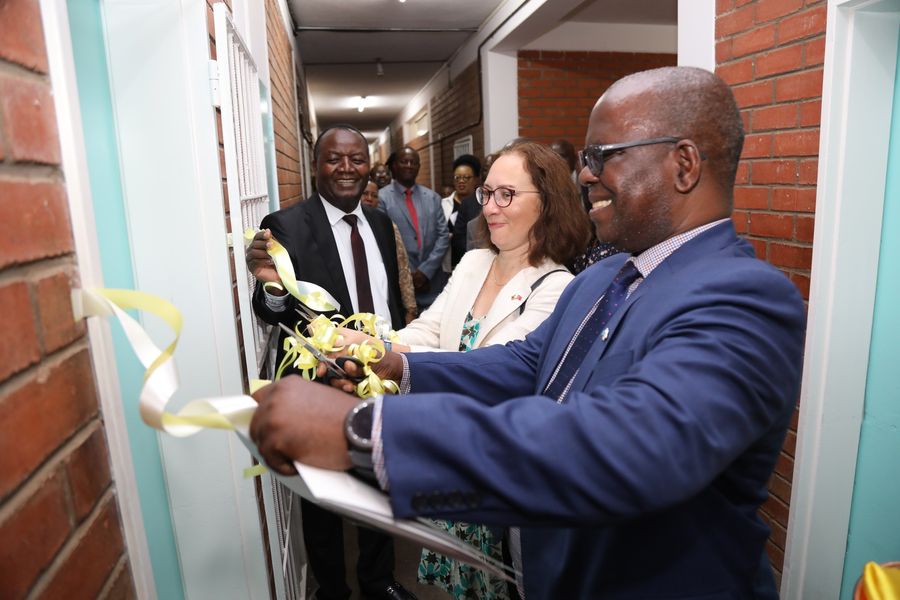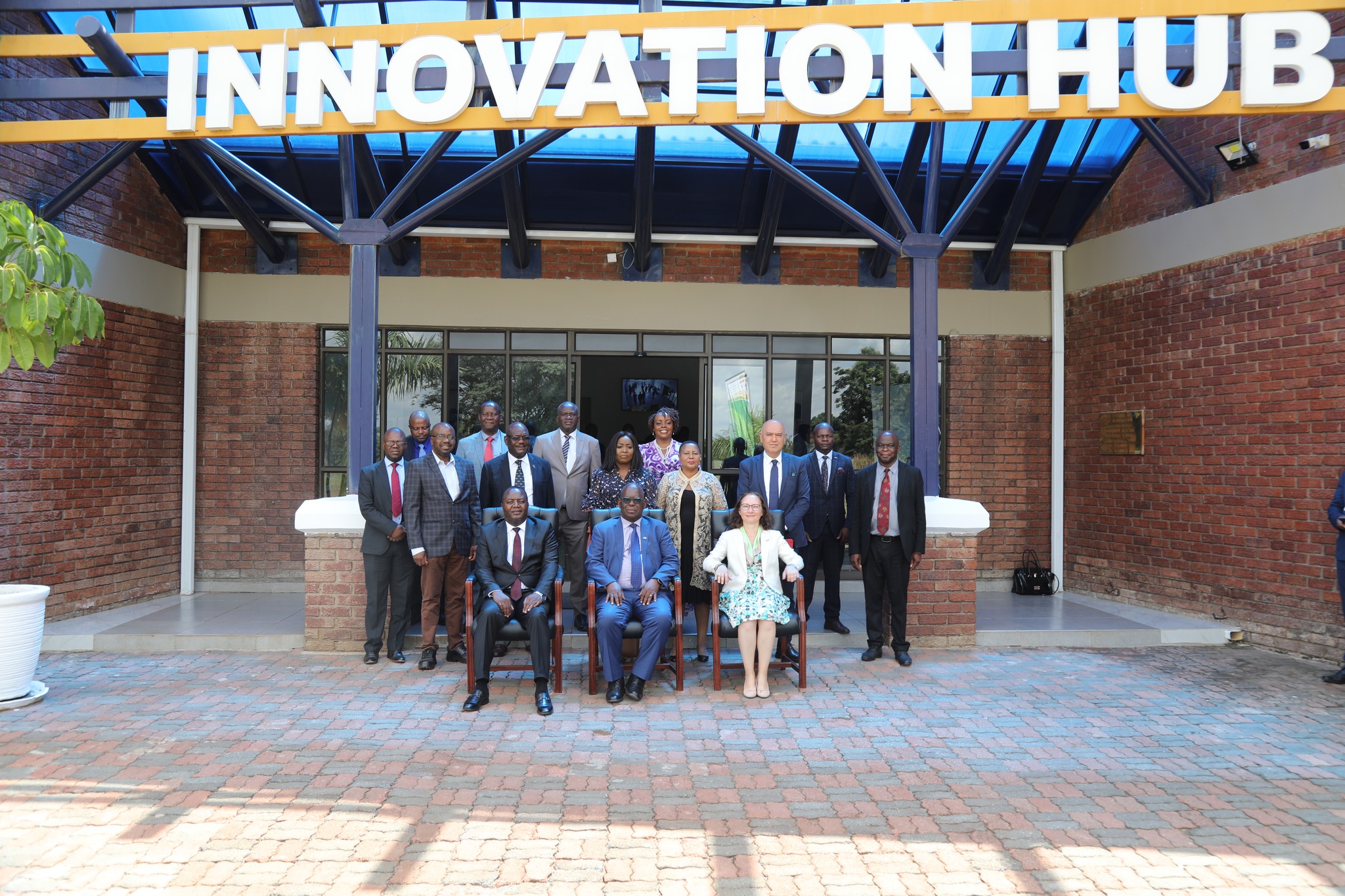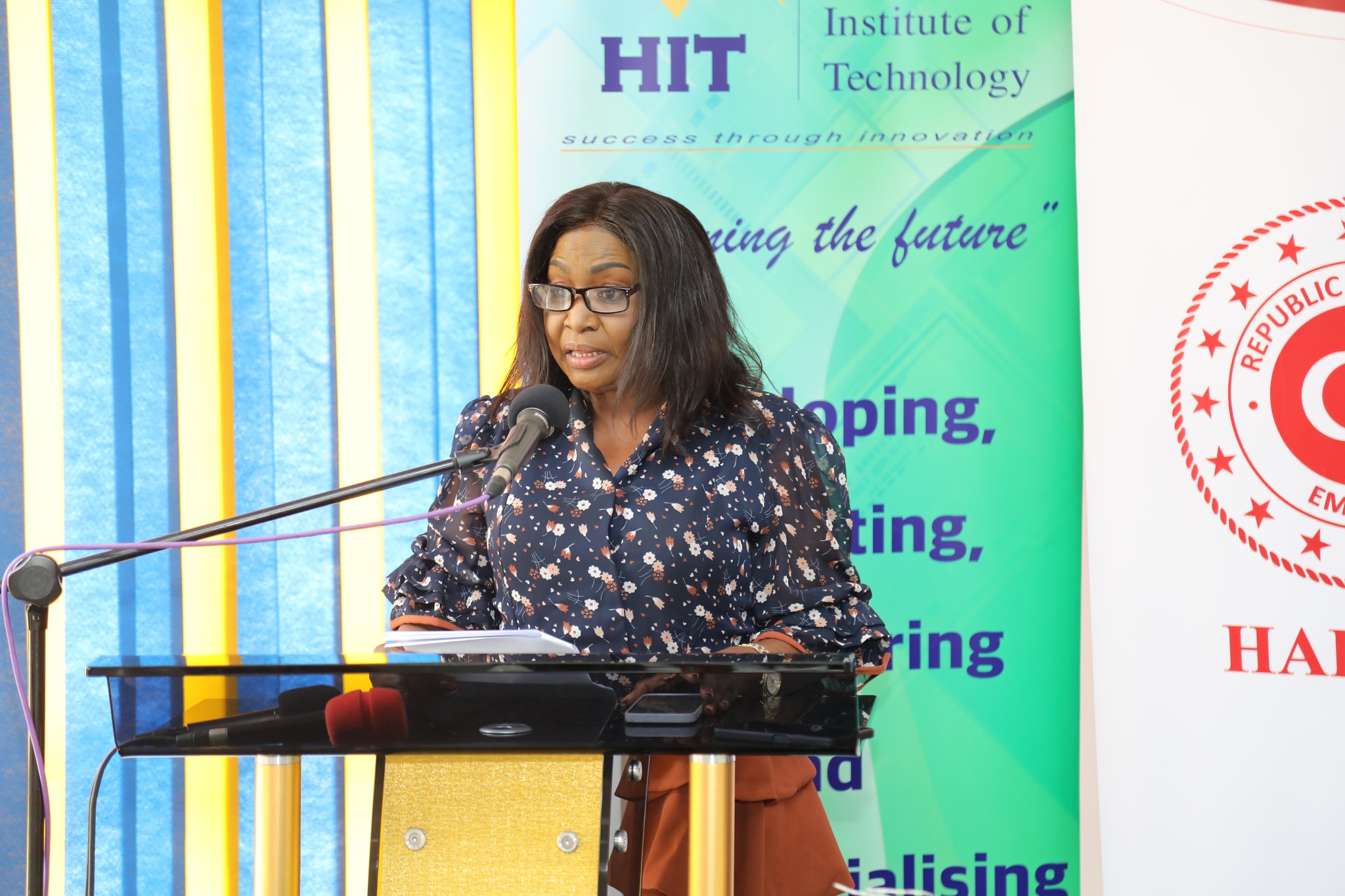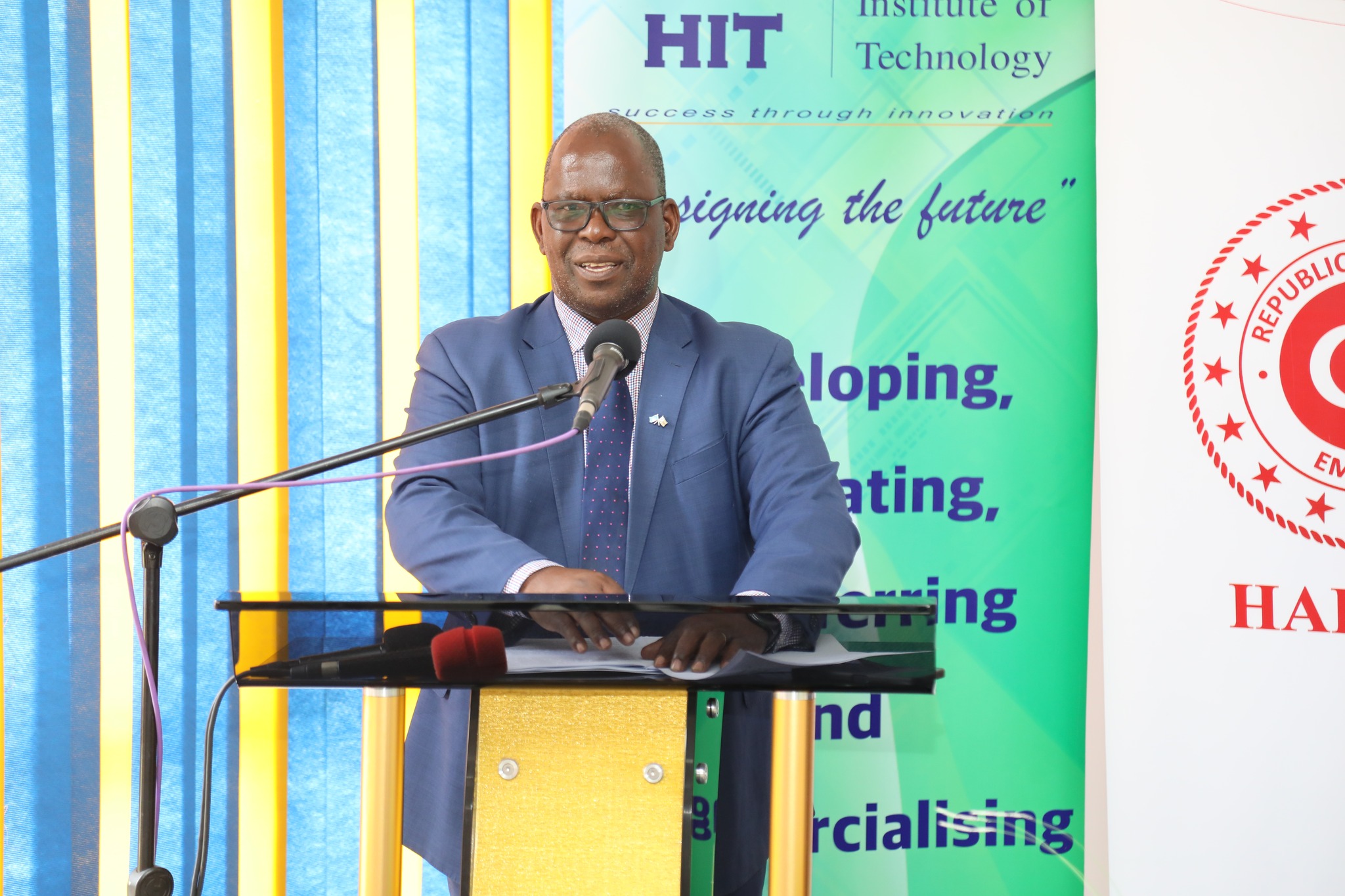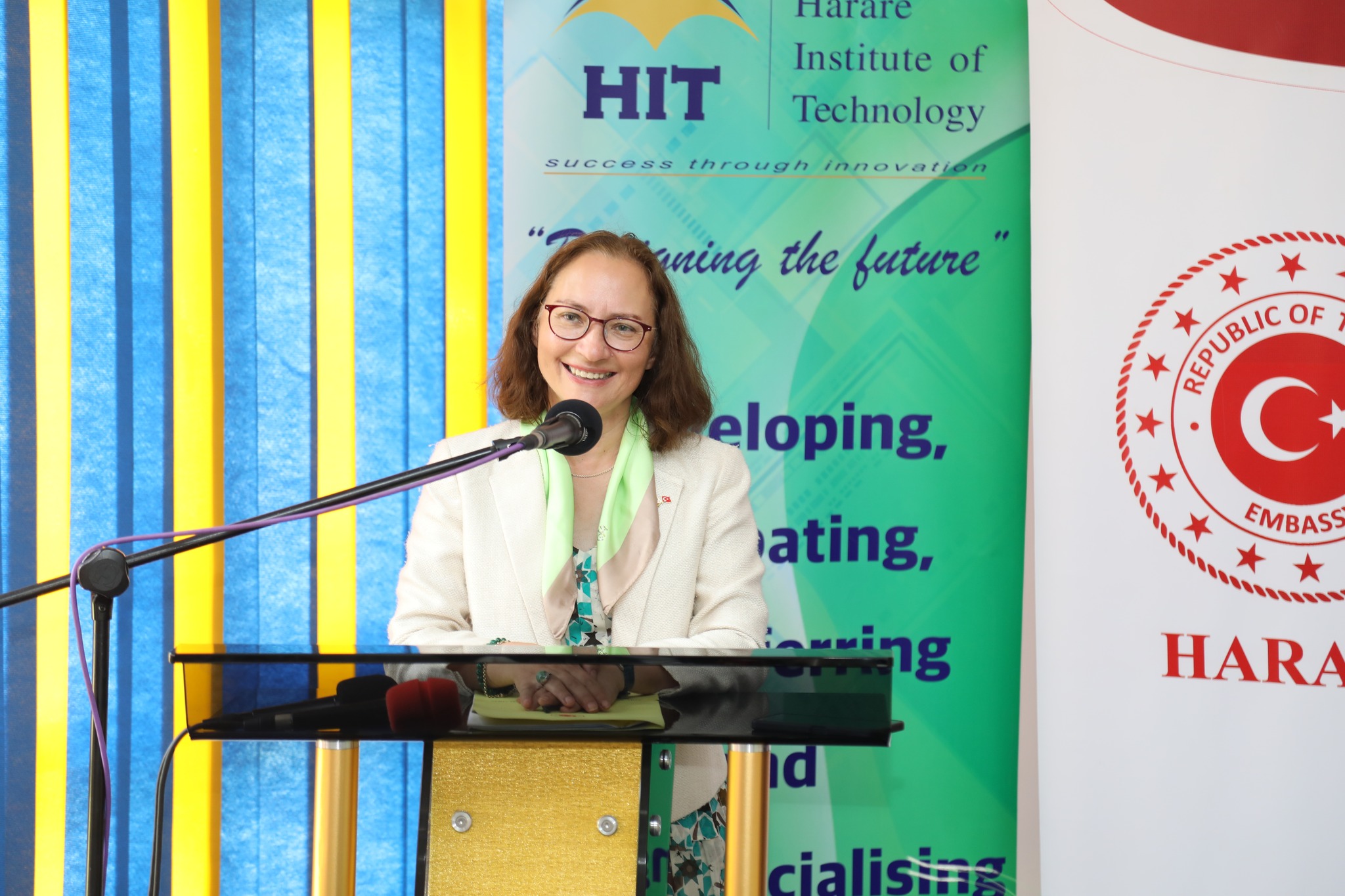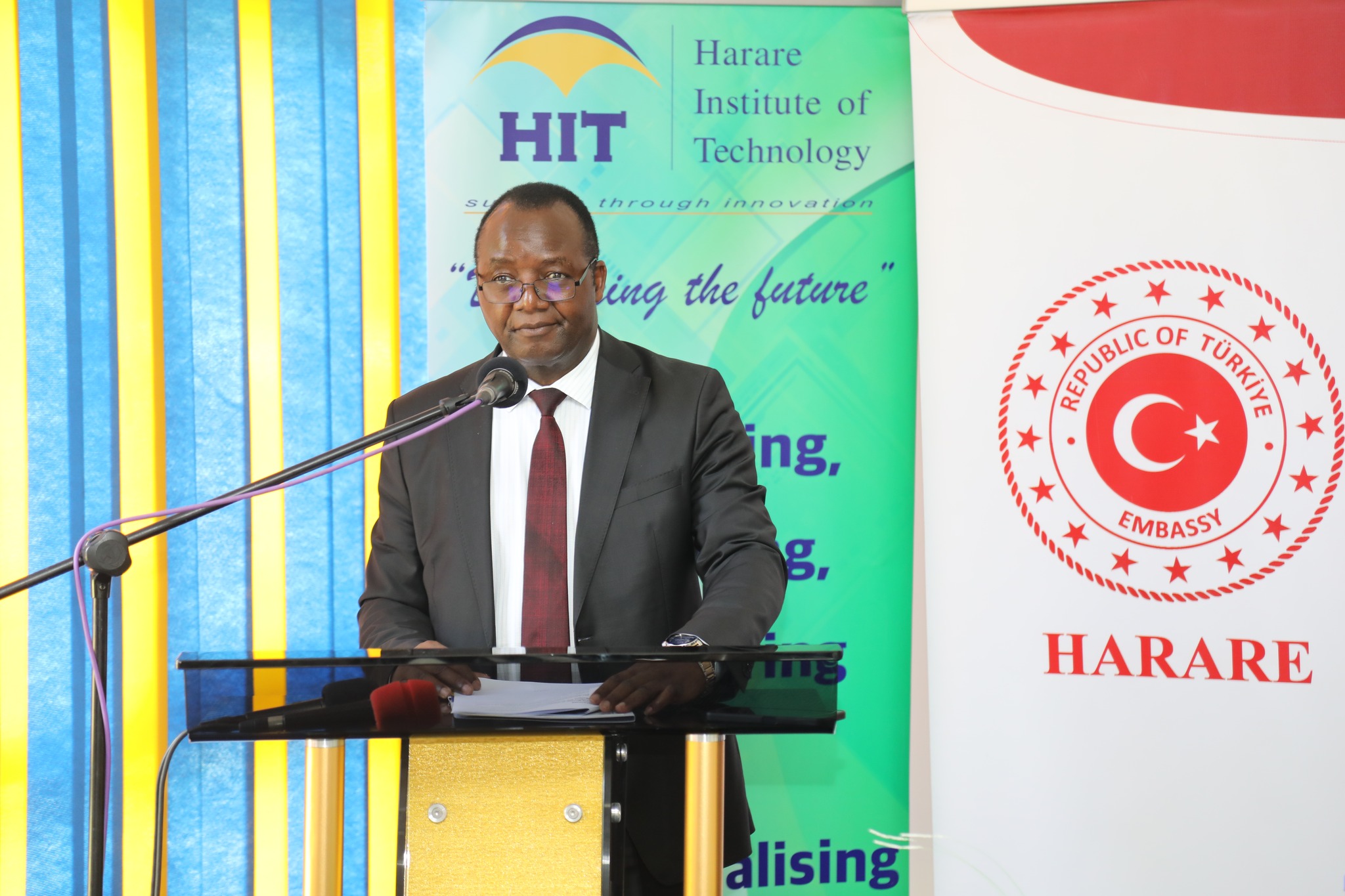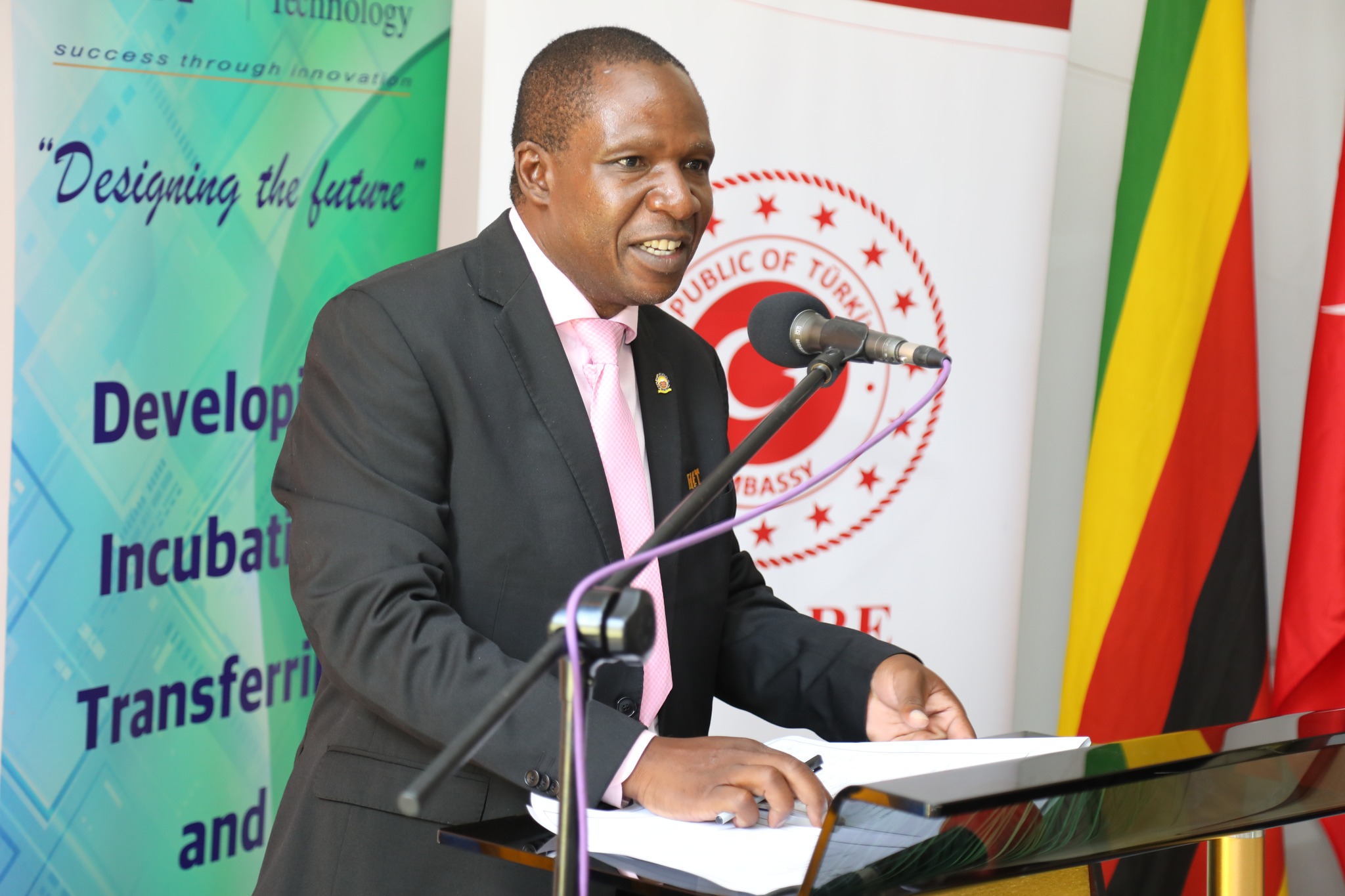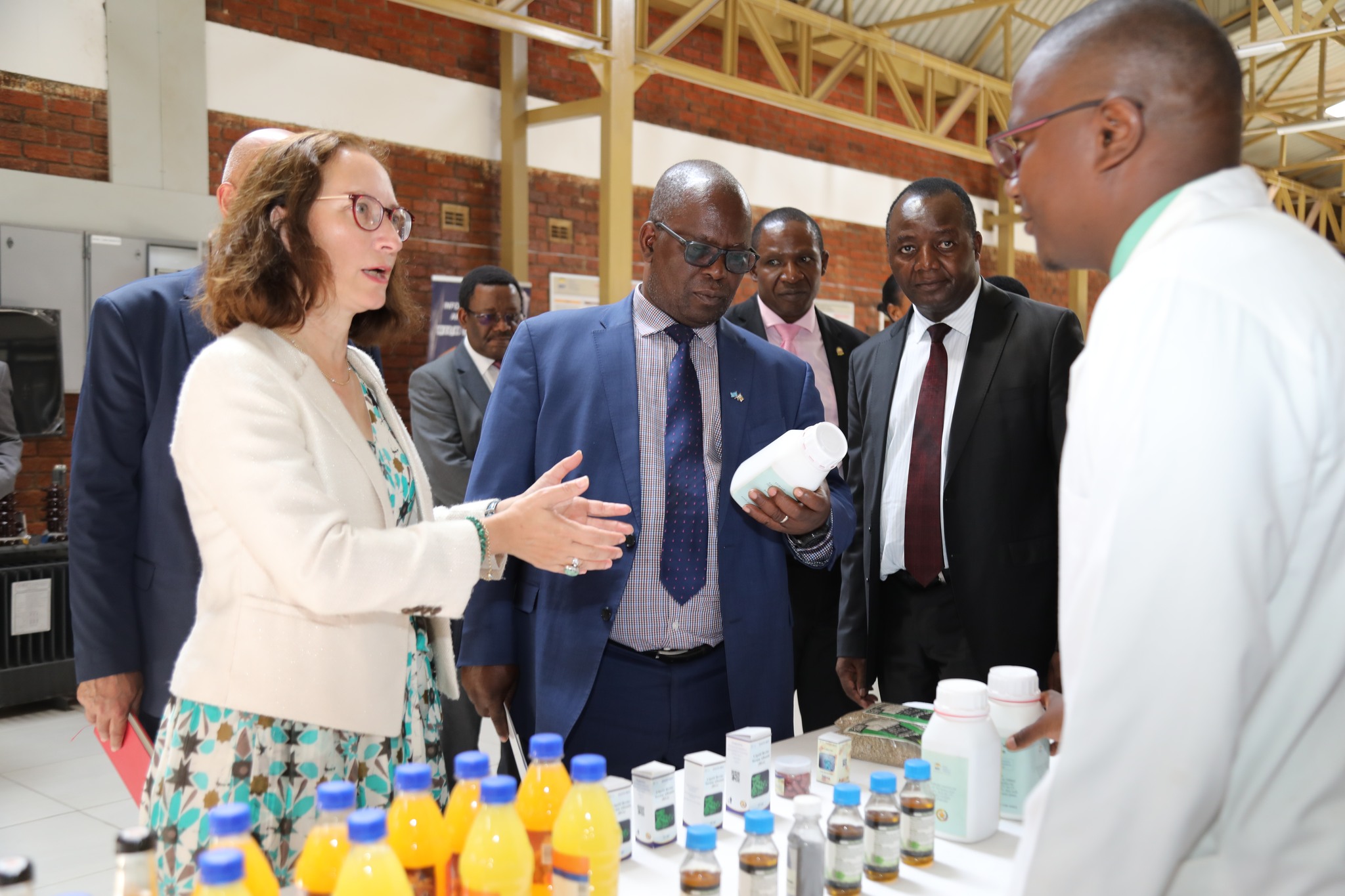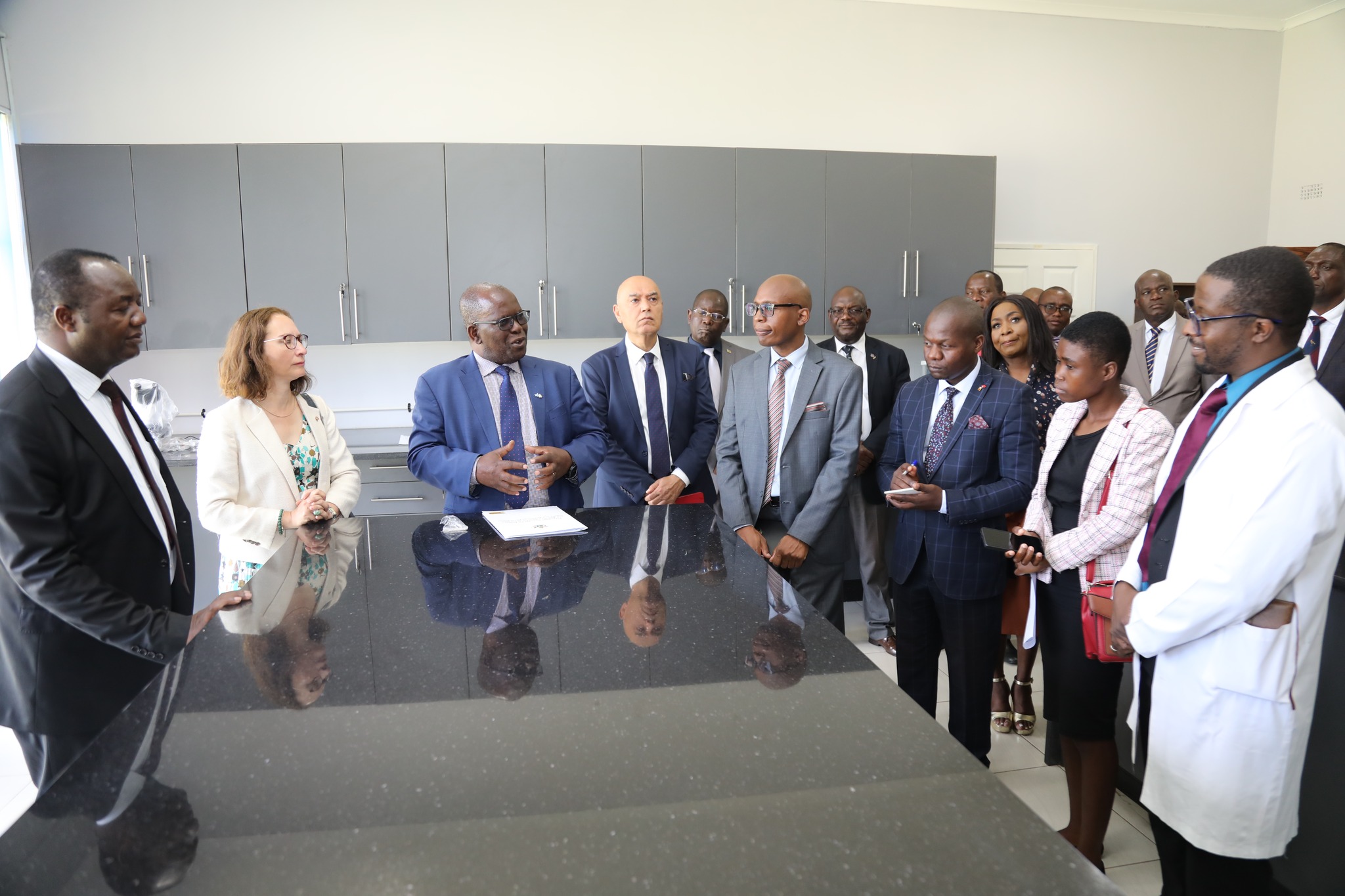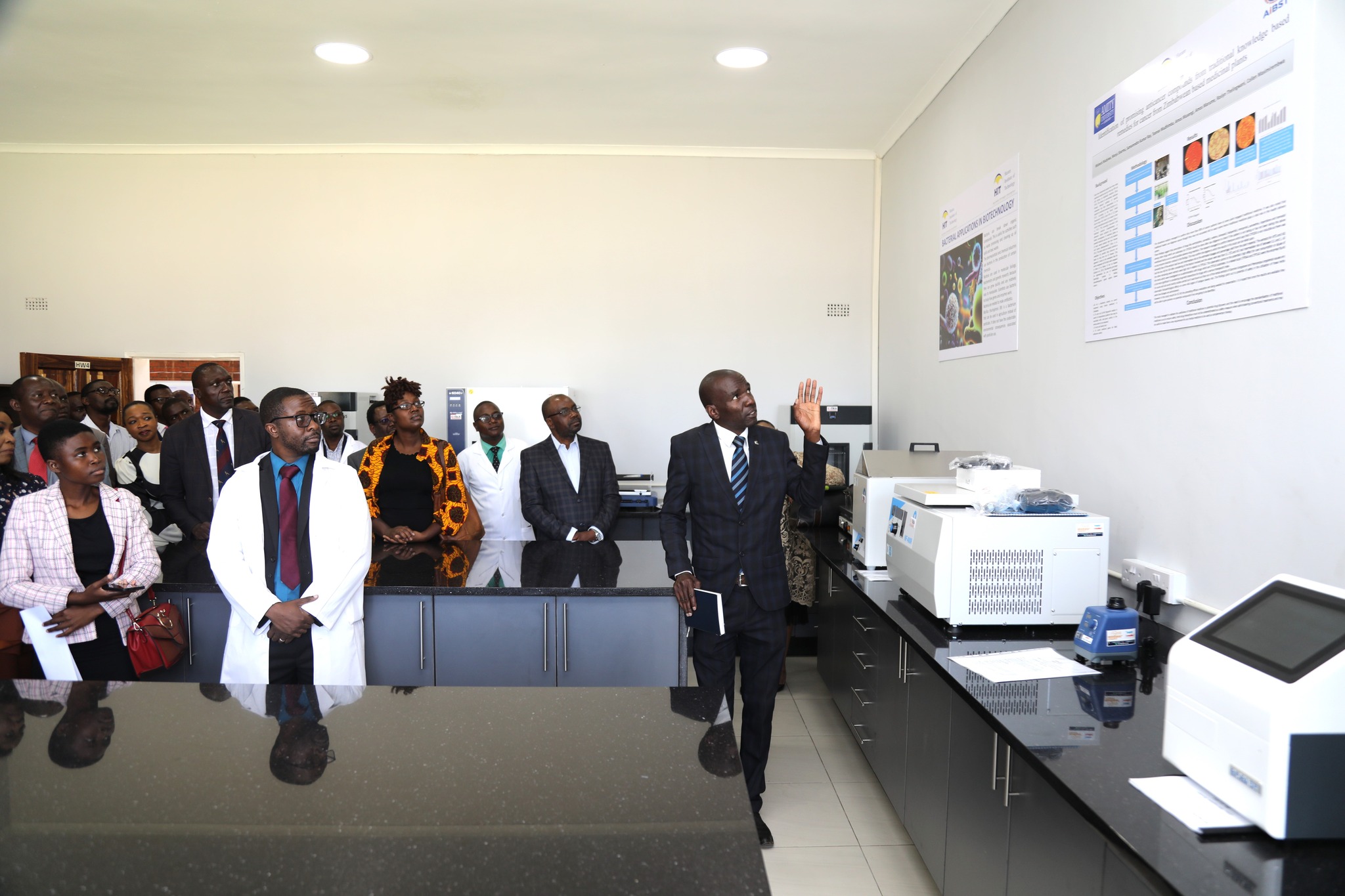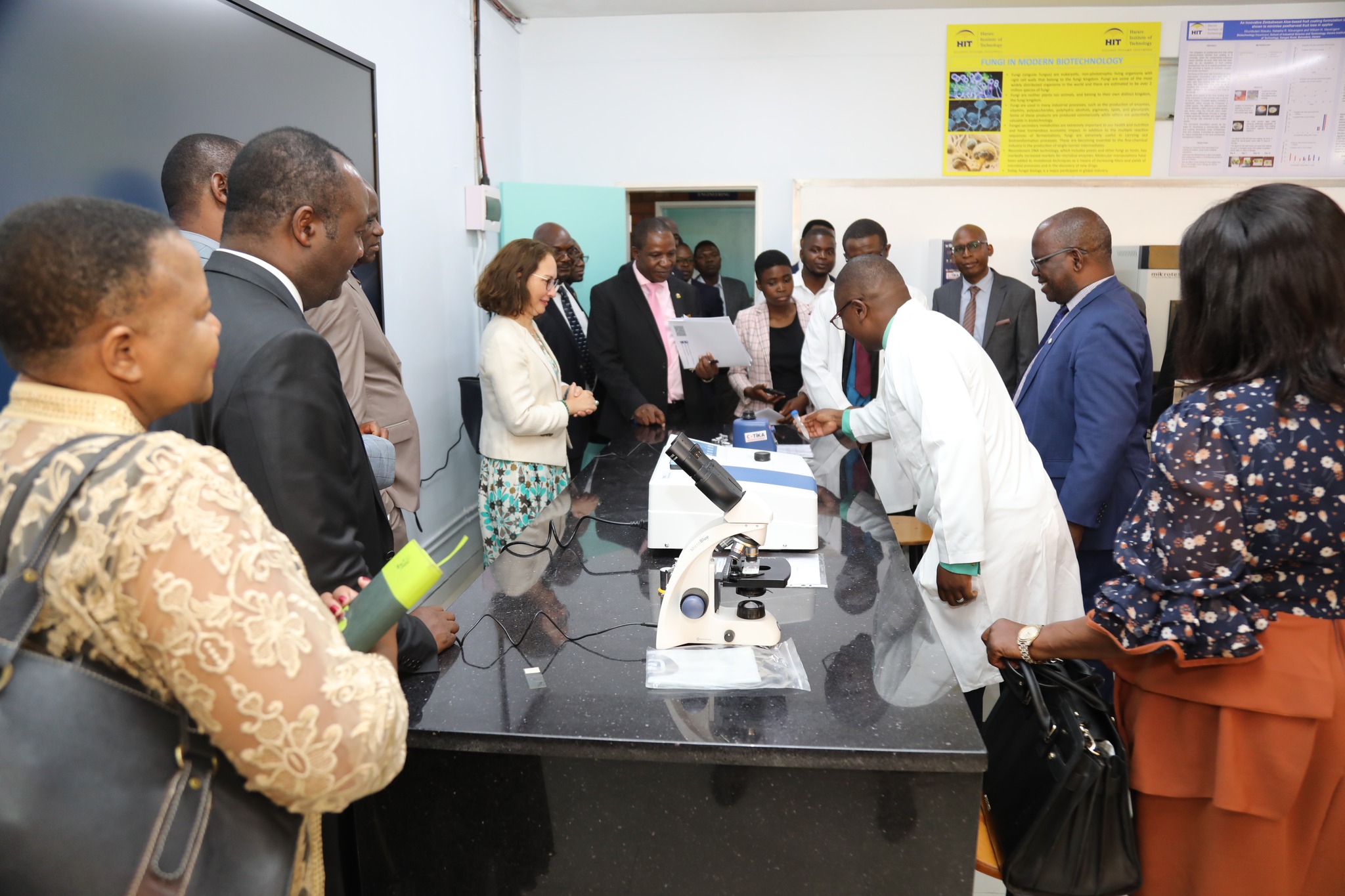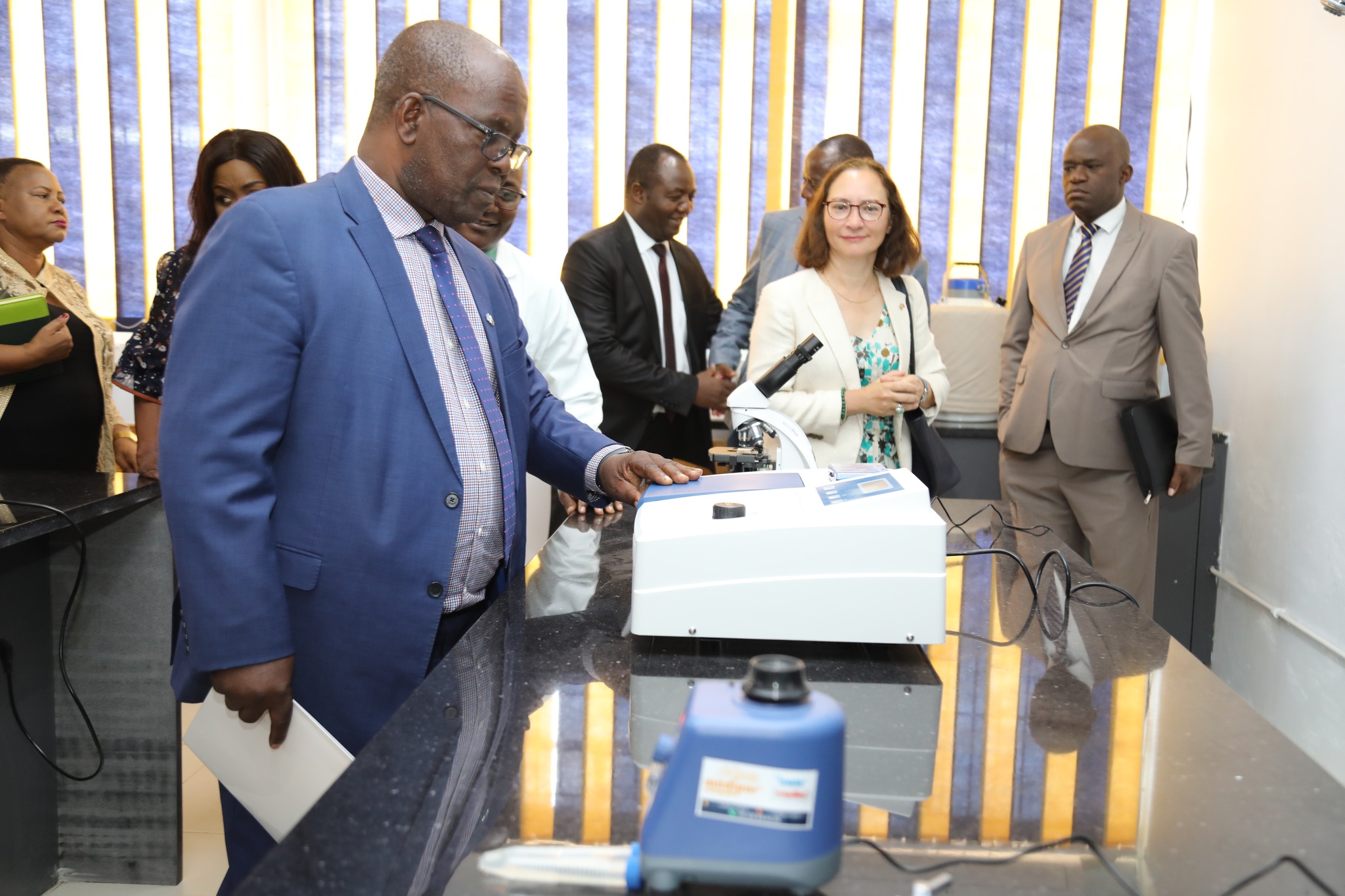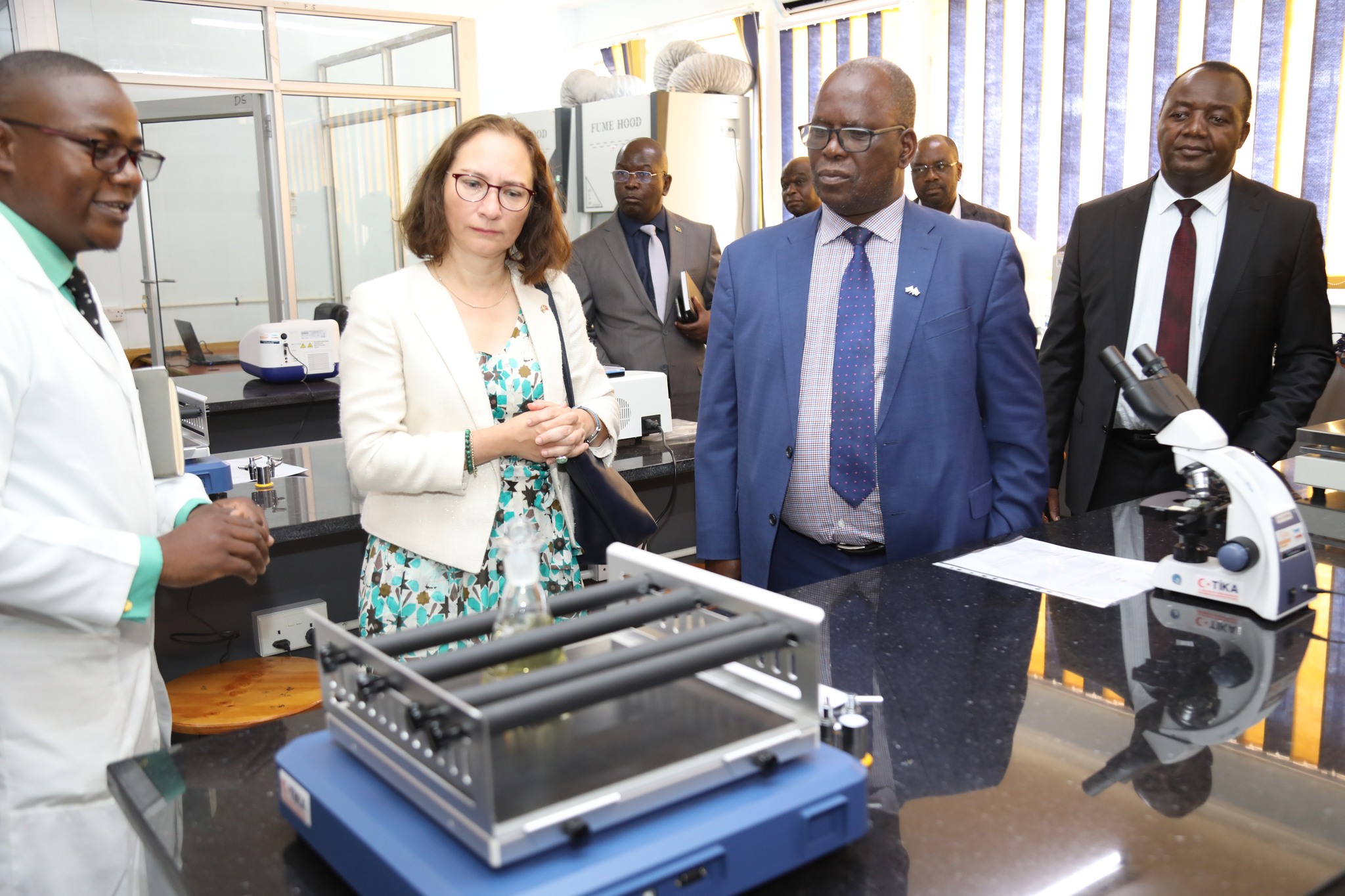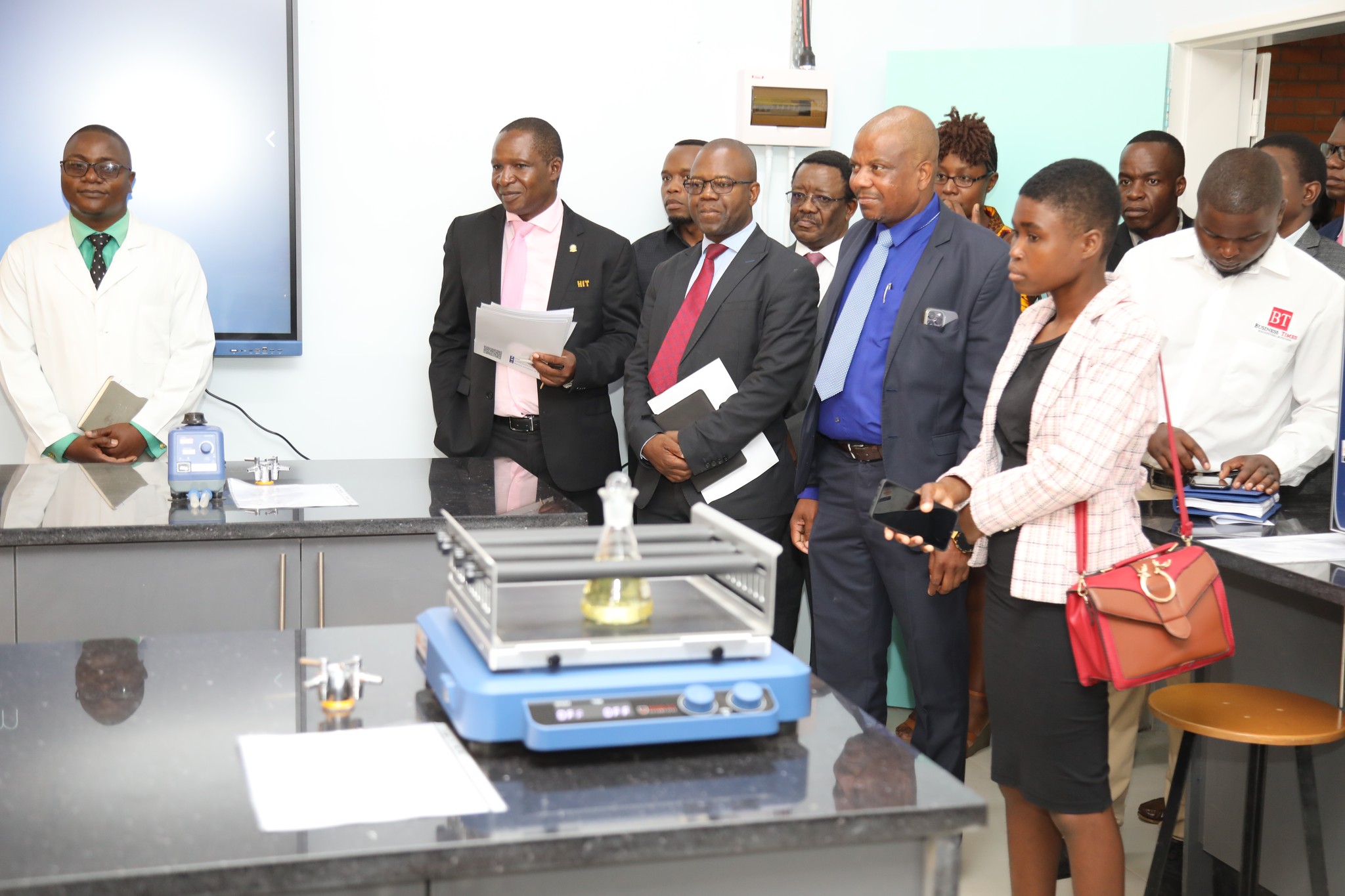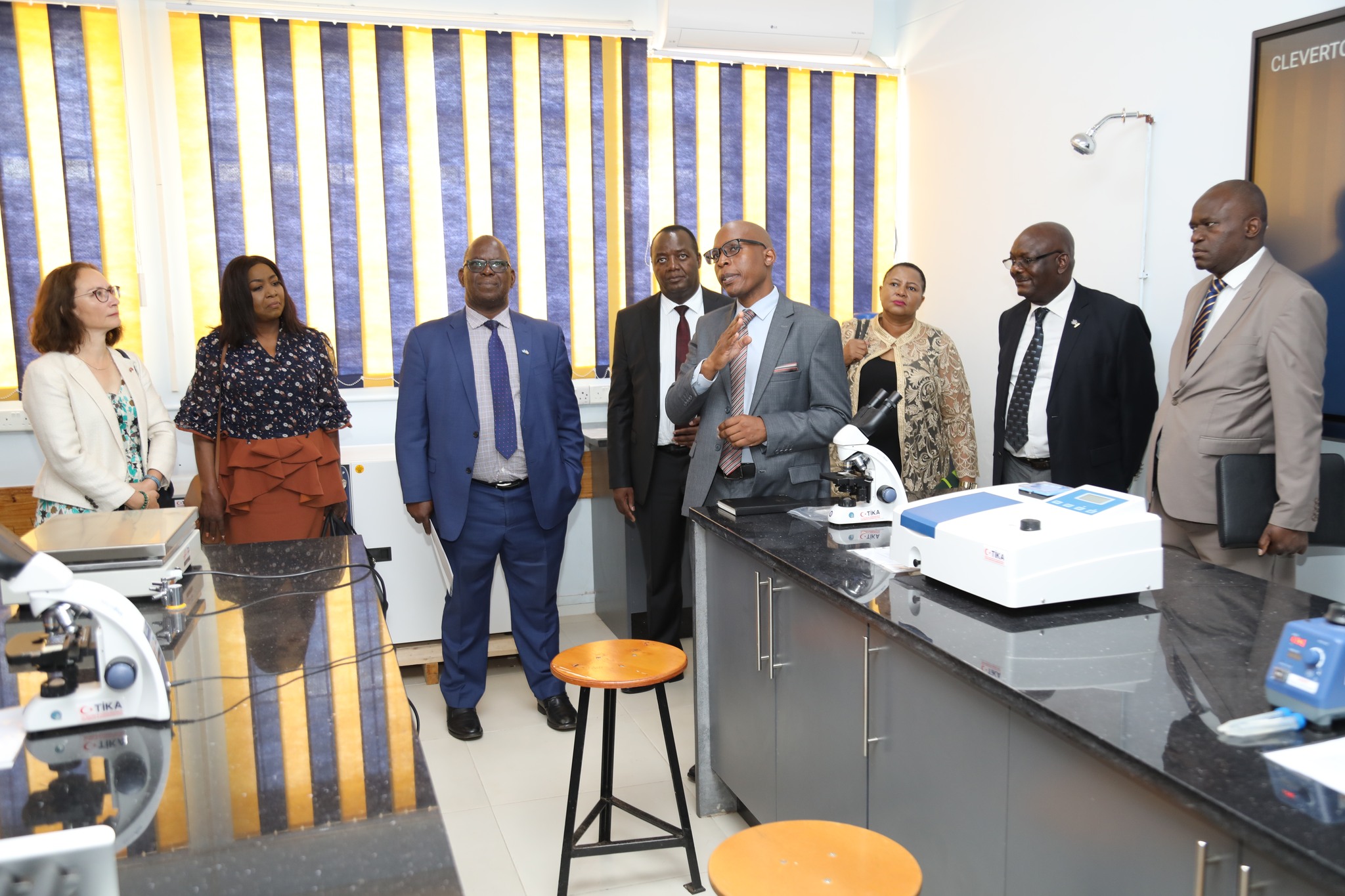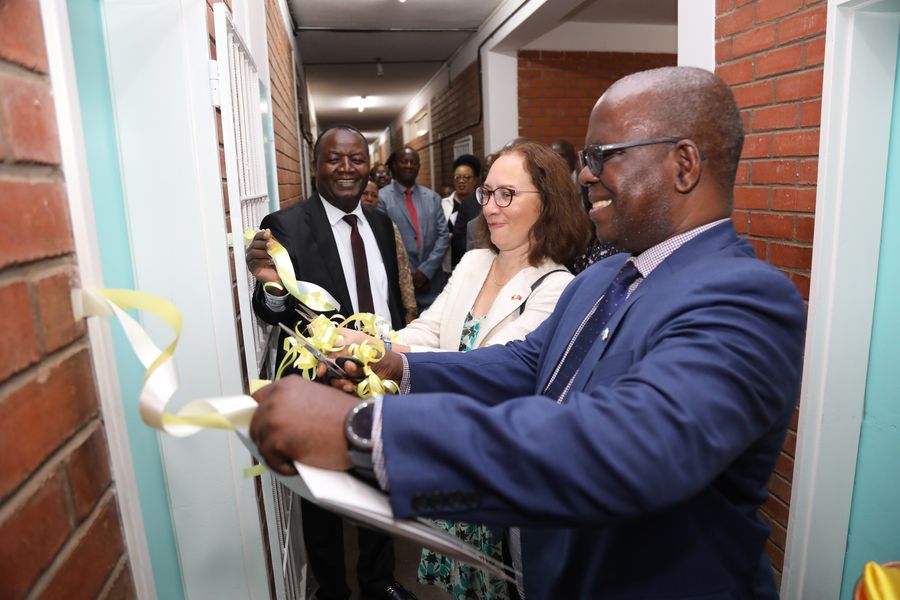The Harare Institute of Technology (HIT) and the Turkish Cooperation and Coordination Agency (TIKA) have officially commissioned a state-of-the-art Microbiology Laboratory to enhance research and innovation efforts.
The laboratory has advanced scientific equipment, including UV/Vis spectrophotometers, analytical balances, fume cabinets, shaking incubators, refrigerated centrifuges, vortex machines, orbital shakers, and high-resolution optical microscopes. This collaboration marks a significant milestone between HIT and TIKA, building on their longstanding partnership. Previously, TIKA had donated equipment to support HIT’s School of Information Science and Technology, Department of Information Security and Assurance, and Digital Forensic Laboratory.
The Microbiology Lab will further upscale HIT’s research and Innovation agenda through the five tenets of Education 5.0, including research, teaching, community service, innovation, and industrialization. The University has already established a research cluster studying Zimbabwe’s traditional and non-traditional food-making microbiological processes to improve food security through the heritage bequeathed to the nation.
Furthermore, HIT will avail the Microbiology Lab to different industries like food and beverages, including dairy, fruits and vegetables, meat, pharmaceuticals, and cosmetics for training and research to improve the competitiveness and value of goods and services that will feed the national economy. HIT has also, through its Pharmaceutical Technology and Biotechnology Departments, undertaken to contribute to drug discovery and grow the economy by studying and understanding microbiology as well as developing efficacious and safe medications.
During the commissioning ceremony, the Turkish Ambassador to Zimbabwe, Ms. Berna Kasnakli Versteden, expressed her delight at the official opening of the HIT Microbiology Laboratory equipped by TIKA. She emphasized the importance of the partnership and highlighted the laboratory’s role in advancing studies and research in areas such as food security, value addition on food and beverage, cosmetics, and pharmaceuticals.
“We consider these projects among the strong bridges of friendship between Türkiye and Zimbabwe. The more we see demand, the more we continue our development projects and assistance through TİKA and other relevant institutions. I am aware HIT has been challenged by the Chancellor His Excellency, the President of the Republic of Zimbabwe Dr E.D Mnangagwa to put real and tangible research innovation outputs that add value through setting up new industries. It is quite a challenge. But I am here to say you are not alone in realizing your vision. Turkish universities and research institutions are ready to cooperate with you or other Zimbabwean institutions. My Embassy’s doors are open to discuss ideas to further our cooperation,” the Turkish Ambassador to Zimbabwe, Her Excellency Ms. Berna Kasnakli Versteden said.
The Ambassador also expressed her gratitude to HIT and officials from the Ministry of Higher and Tertiary Education, Innovation, Science, and Technology Development for their cooperation. “I am looking forward to receiving the news about breakthroughs and products developed with the assistance of the Laboratory we have just commissioned,” she said.
In his remarks at the event, HIT Vice Chancellor, Professor Eng. Quinton Chamunorwa Kanhukamwe acknowledged the support from the Turkish Government through TIKA, highlighting the laboratory’s significance in contributing to the transformation of the economy through technology and engineering solutions. He emphasized the University’s commitment to partnerships and its alignment with the national development imperatives. “The commissioning of this Microbiology Laboratory represents a significant step in HIT’s efforts to enhance research, development, and innovation in various sectors, and it underscores the institution’s dedication to contributing to the country’s economic development and prosperity,” he said.
“Allow me to thank the Turkish Government through their development agency, TIKA, for their support and commendable work at our University and for identifying us as a suitable partner and host of this Laboratory. As you have already witnessed, it is being put to good use and will be handled with utmost care and diligence. We are scaling new heights in pharmaceutical biotechnology, fermentation processes, recombinant DNA technology, drug discovery, and development as well as industrial biotechnology.”
“This Laboratory is also significant as it is a clear demonstration of the University’s faithfulness and eagerness in executing partnerships to the better and spirit of agreements. This dovetails with the Second Republic’s unequivocal undertaking and guarantees to deliver a Prosperous and Empowered Upper Middle-Income Society by 2028 through the twin pillars of Industrialization and Modernization. The road to that prosperity has found expression in the national economic blueprint – the National Development Strategy 1 (NDS1). Furthermore, HIT has crafted a strategy that speaks to the national development imperatives, thus contributing to the realization of our collective national aspirations,” said the Vice-Chancellor.
Professor Eng. Kanhukamwe added that HIT is consolidating its signature as the hub of technology development and delivery of quality engineering and technology degrees, increasing research, development, and innovation outputs through offering postgraduate Master of Technology degrees in Food Processing, Industrial Biotechnology, and Pharmaceutical Technology as well as the soon-to-be-launched Drug Discovery Masters program. “This laboratory is central to all microbiological research, ultimately driving our quest to produce tangible and verifiable outputs”.
“Through the establishment of this Microbiology Lab, HIT is living Zimbabwe’s foreign policy whilst executing its internationalization goal of causing the development, incubation, transfer, and commercialization of technology beyond national boundaries and growing the University into a truly global technological university with global connections, impact, and reach. This partnership with TIKA will go a long way in laying a solid foundation for the scientific development of our country and delivering development by tackling head-on challenges that afflict our society. We further envisage an increase in HIT’s research outputs,” Professor Eng. Kanhukamwe said.
In a speech read on his behalf by Professor Fanuel Tagwira, the Permanent Secretary for the Ministry of Higher and Tertiary Education, Innovation, Science, and Technology Development, the Minister Professor dr Amon Murwira said the Microbiology Laboratory enhances Heritage-Based Education 5.0. “We have implemented the Education 5.0 doctrine as a central policy to transform our education from a rudimentary state of producing job hunters to the production of wealth creators. This has seen a massive shift in mindset amongst our academics as they coalesce around innovation and the commercialization of their research and development outputs through the Innovation Hubs”.
“This gesture by the Turkish Government through their development agency, TIKA, is a shot in the arm for our government to quickly realize some of the objectives of the National Development Strategy 1 (NDS1) program. For example, investigations in microbiology have direct and indirect consequences on food security and nutrition, human capital development, health and well-being, as well as the movement of the economy up the value chain,” the Minister said.
He added that the new equipment goes a long way in addressing Heritage-Based Education 5.0 as impossible experiments will now become possible, thus expanding the scope, accuracy, and speed of our microbiological investigations. “The new tools will without any doubt improve the way classes in microbiology are conducted, giving students real-life and practical hands-on experience in training. With the other biotech tools that HIT already has, I challenge the University to further leverage this capacity and to grow national capacity in the dimensions of pharmaceutical biotechnology, fermentation processes, recombinant DNA technology, drug discovery and development, as well as industrial biotechnology to improve our competitiveness”.
“Let me hasten to acknowledge the impact that this Microbiology Laboratory has in our internationalization of higher education bid. We now expect HIT to leverage this relationship to connect with universities in Turkey and establish research, development, and innovation partnerships. I am sure the Turkish Ambassador to Zimbabwe Ms. Berna Kasnakli Vesteden is more willing to foster these relationships. On behalf of my ministry and all Zimbabweans, let me thank the Turkish Government and its development agency TIKA for identifying HIT as a trustworthy partner in the advancement of science and technology as vehicles of development. We stand in full support of the project and look expectantly to the realization of its entire set objective,” Prof. dr Amon Murwira said.
The ceremony was attended by officials from the Ministry of Higher and Tertiary Education, Innovation, Science, and Technology Development, the Turkish Embassy in Zimbabwe, the new HIT Board Chairperson Dr. Grace Taruvinga, other Board Members, HIT Senior Management, some stakeholders, Staff, and Students from the School of Industrial Sciences and Technology.


